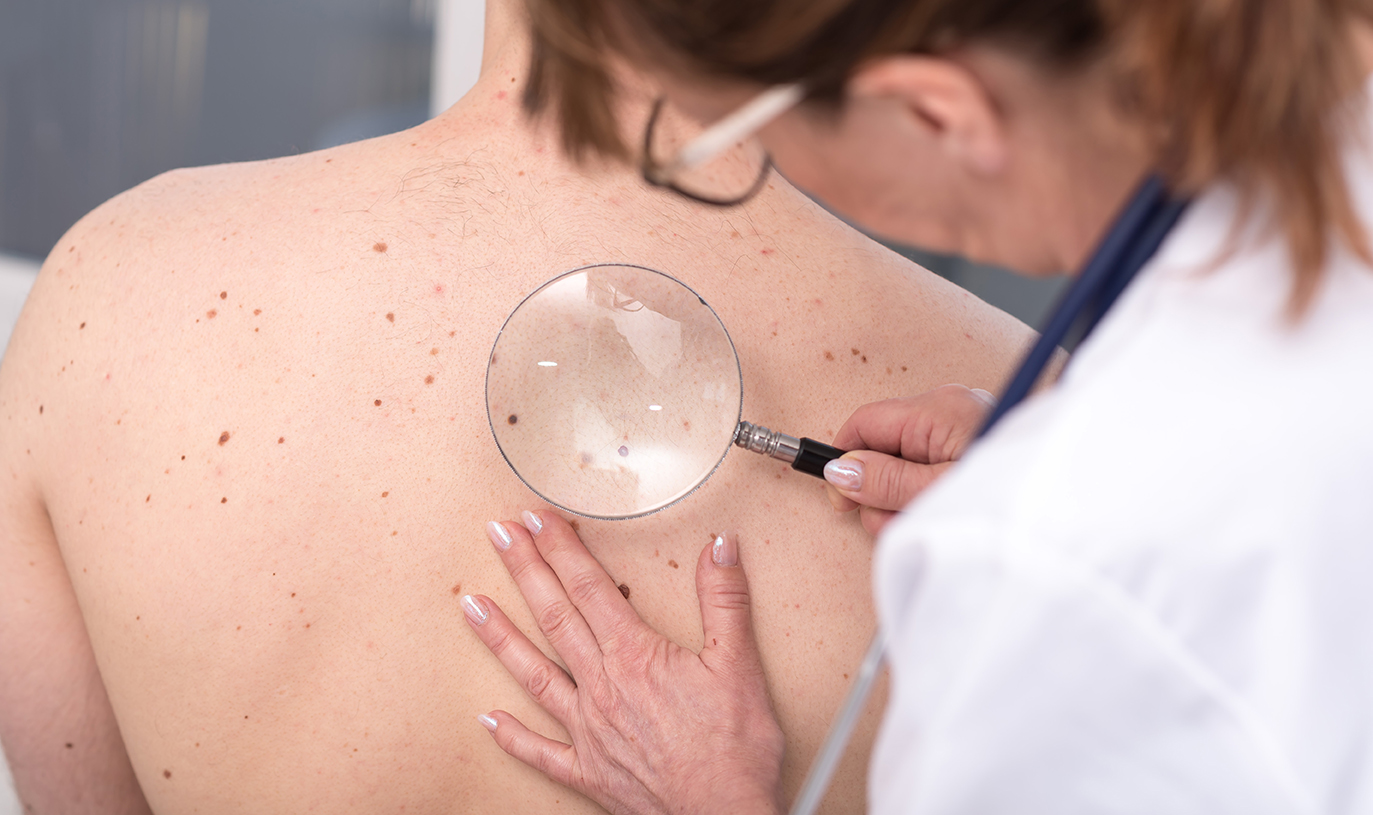
What Is Skin Cancer?
Skin cancer is the most common cancer diagnosed in the United States. Current estimates are that one in every five Americans will develop skin cancer in their lifetime. It can affect anyone, regardless of skin color. Skin cancer in patients of darker skin tones is often diagnosed in later stages.
What are the Risk Factors for Skin Cancer?
- Excess ultraviolet (UV) exposure from sunlight or indoor tanning
- Experiencing five or more blistering sunburns
- Light colored eyes and lighter skin tones
- Having greater than 50 moles
- Having unusual looking moles
- Having a family history of skin cancer
- Having a personal history of skin cancer
- Having a weakened immune system
What are the most common kinds of skin cancer?
Basal Cell Carcinoma and Squamous Cell Carcinoma are the two most common forms of skin cancer. They will often present as a non-healing rash or bug bite or pimple. If there is anything on the body that does not seem to be healing in the correct amount of time, or something that spontaneously bleeds or grows, this should be brought in for a medical evaluation. However, these most common cancers are also highly curable if detected early and treated properly.
Melanoma is a little less common but it is the most lethal of all the skin cancers. The vast majority of skin cancer deaths in the United States are from melanoma. Nearly 20 Americans die from melanoma daily. It is the type of cancer that will spread throughout the body, which is what leads to death. If detected early before it spreads outside of the skin, the 5 year survival rate is 99%. However, melanomas caught late that have spread to distant lymph nodes or organs have a survival rate of below 30%. At its onset, it will often present as a spot that is eye-catching BUT in its early stages, is not something you can feel with your hands. Therefore your skin has to be inspected with your eyes!
How do you protect yourself from skin cancer?
The dermatologists at Clear Dermatology personally recommend sun protective clothing (hats, long sleeves, sunglasses, etc). And the sun protective clothing market has exploded in the last decade with newer designs and more comfortable wear. Sunscreen to any areas of the skin exposed with reapplication every 1-2 hours is also recommended. The reapplication is the part most people will forget about but unfortunately, there is no sunscreen that lasts all day. We recommend sunscreens with an SPF30 or greater that are listed to have Broad Spectrum ingredients. Mineral sunscreens containing zinc oxide or titanium dioxide are the best for small children and those with sensitive skin. The sun is strongest between 10am and 2pm so outdoor activities during that time require more stringent protection. Seek shade whenever possible. And avoid tanning beds. Perform monthly self skin examination with your eyes, looking at both the frontside and the backside of yourself as well as places where the sun does not go (bottoms of feet and genitals).
What is a skin cancer examination?
You will be asked to undress so that all aspects of the skin can be checked. You will have a gown for modesty. Genital examinations are up to the discretion of the patient. Your dermatologist will inspect your skin with their eyes as well as with a tool called a dermatoscope. Your dermatologist will also be feeling for more subtle changes in the skin. Make-up and excessive hair products will limit the examination of the face and scalp. If an unusual lesion is seen, you may undergo a skin biopsy, where the area will be locally numbed, removed, and sent for testing.
How is skin cancer treated?
Your skin cancer treatment not only depends on the type of cancer you have, but the size, depth, and location of your lesions. Some lesions may be able to be treated by curettage (scraping the remaining cancer cells out). Some lesions may be able to be treated with topical chemotherapies. Excisional surgery may be required where the lesion and a small margin are cut out, and the area is stitched up in repair. Mohs surgery is a specialized type of excisional surgery used in cancers in more cosmetically sensitive areas. It is used to limit the amount of normal skin removed in surgery. Some types of cancer will require lymph node surgical examination as well. Our staff here at Clear Dermatology will help navigate this process with you once a diagnosis is made after the biopsy.
Where can I get examinations and treatments for skin cancer in Ashburn?
The team of experienced and knowledgeable skin cancer doctors at Clear Dermatology is here to help. If you suspect you have a skin cancer or are in need of a routine skin cancer check, contact our office at 703-996-4000 or schedule your skin cancer examination online today.
